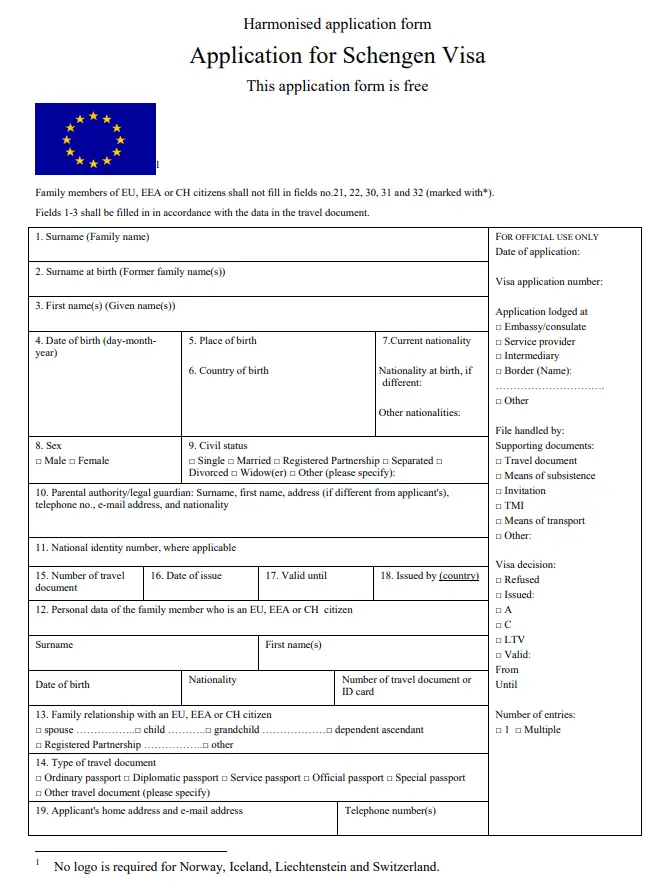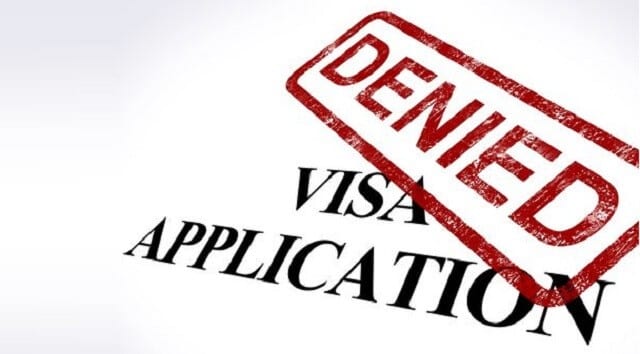How to Apply for a Greece Schengen Visa from the UK

Home to more than 60 inhabited islands that are surrounded by jet blue seas and covered in dainty white buildings, Greece's attractions range from its idyllic beaches in islands like Mykonos, Santorini and Corfu, and striking mountain ranges, like the Olympus Mountain Range and Rhodope Mountain Range, to name a few, as well as its many historical attractions, like the Acropolis and the Parthenon in Athens, and the many temples dedicated to the Greek gods, with many of them dating back as far as for millennia.

The greatness of Greece is perhaps best represented in the fact that it is home to one of the oldest civilizations on earth. Most of technology, art, science and scholarships are rooted deeply in the land of Greece. One can literally travel back in time and enrich their idea of the human race.
Greece offers a plethora of spectacular tourist spots, landmarks, islands and mountains and has always been an attractive destination for those who seek solace. To relish the exotic colour of the sea, the bright light of the sun, and the vivid nightlife of Greece, read onn to find out how you can acquire your Greece Schengen visa now!
Greece Entry Restrictions in Response to Coronavirus

In early 2020, Greece, along with rest of the Schengen countries, closed their borders in response to the COVID-19 pandemic. Greece has since re-opened its borders back up for travel, but with restrictions that depend on your country of origin. The country, like most other Schengen countries, updates its restrictions regularly depending on the current situation.
Greece has adopted its own national classification of risk areas. Travel restrictions for the country are not based on the “EU Traffic Lights” map of other Schengen and EU countries.
You should check on the latest news regarding restrictions, quarantine or whether a test will be required either from reliable news sources, the Greek government website, or the UK government website one-two weeks before your trip to be aware of the latest requirements for travelling to Greece.
EU Digital COVID Certificate
The EU Digital COVID Certificate, which will be available starting 1 July 2021, provides proof that a person has either:
- been vaccinated against COVID-19
- received a negative test result, PCR or rapid antigen,
- or has recovered from COVID-19
The EU Digital COVID Certificate grants travellers the same rights as vaccinated, tested or recovered citizens of the EU Member State they are visiting and allows travel into the EU.
Greece is connected to the EU Gateway and is issuing and/or verifying at least one EU Digital COVID Certificate (COVID vaccination, COVID recovery, or COVID test).
Passenger Locator Form
You must complete an online Passenger Locator Form (PLF) at least 24 hours before your arrival in Greece. Failure to do so in advance may result in your carrier not allowing you to travel, a 500 Euro fine on arrival or the Greek authorities not allowing you to enter the country.
Every traveller, including children, must have their details included on a Passenger Locator Form (PLF). If you’re travelling with others outside of your household, you should all complete your own form. If you’re travelling together as a household, the Greek authorities ask for you to complete one form with all adults and children included. You can add additional members of your household at the top of the form before you submit it.
Testing and quarantine on arrival

When you arrive in Greece, the Greek authorities will scan your QR code and may require you to undergo testing for coronavirus, as part of health screening. The Greek authorities’ instructions will differ according to whether you arrive by land, sea or air. Check the requirements that will apply to you on the PLF form page.
Any passenger entering Greece may be asked to undergo a test, but you are more likely to be asked if you have arrived from a country outside of the EU (including the UK), either directly or via indirect flights.
If you are required to take a test on arrival:
- After testing you should practise social distancing and self-monitor for symptoms that could indicate COVID-19. The Greek authorities will contact you if you test positive and advise you on whether you need to self-isolate or quarantine. Test results are expected to become available within 24 hours
- if your test result is positive, the Greek authorities are likely to ask you to self-isolate for 14 days. Depending on the nature of your accommodation (e.g. whether you’re staying in a hotel, or in a private property like a house or villa), you may be required to move to government-provided accommodation. If you’re asked to move, the costs of the transfer and your new accommodation will be paid by the Greek authorities.
If you are not required to take a test on arrival, you will not be required to self-isolate.
You must comply with all instructions given by the Greek authorities. Failure to do so may result in you being refused permission to enter Greece and/or legal enforcement.
You should also be aware that if other passengers on your flight subsequently test positive, you may be subject to further quarantine/self isolation requirements. These will be mandatory and you should comply with the Greek authorities’ requirements.
Who needs a visa to travel to Greece from the UK?
Travelling to Greece for EU/EEA Citizens
Greece is a Schengen country, which allows for free movement between the 26 EU and EFTA states (Iceland, Norway, Liechtenstein, and Switzerland). A uniform Schengen visa issued by one of the Schengen states is valid for travel within the whole Schengen area.
Travelling to Greece Post-Brexit for UK Citizens
The rules for travelling or working in European countries changed on 1 January 2021:
- you can travel to countries in the Schengen area for up to 90 days in any 180-day period without a visa as a tourist, to visit family or friends, to attend business meetings, cultural or sports events, or for short-term studies or training
- if you are travelling to Greece and other Schengen countries without a visa, make sure your whole visit is within the 90-day limit. Visits to Schengen countries within the previous 180 days before you travel count towards your 90 days
- for long-stay visits, to work or study, for business or for other reasons, you will need to meet the Greek government’s entry requirements.
- if you stay in Greece with a residence permit or long-stay visa, this does not count towards your 90-day visa-free limit
At Greek border control, you may need to use separate lanes from EU, EEA and Swiss citizens when queueing. Your passport may be stamped on entry and exit. You may also need to:
- show a return or onward ticket
- show you have enough money for your stay
There are separate requirements for those who are residents of Greece. If you are resident in Greece, you should carry proof of residence as well as your valid passport when you travel. You should also check your passport’s validity when you travel and renew it if you don’t have enough time on it. Your passport must be:
- valid for at least 3 months after the day you plan to leave Greece or any other Schengen country
- less than 10 years old
Travelling to Greece for Other Third-Country Citizens
Citizens of the following countries residing in the UK and planning to visit Greece are required to get a Greek visa in order to be able to enter Greece.
[su_tabs][su_tab title=”A-C”][su_table]| Afghanistan | Algeria | Angola |
| Armenia | Azerbaijan | Bahrain |
| Bangladesh | Belarus | Belize |
| Benin | Bhutan | Bolivia |
| Botswana | Burkina Faso | Burma/Myanmar |
| Burundi | Cambodia | Cameroon |
| Cape Verde | Central African Republic | Chad |
| China | Comoros | Congo |
| Cote D'iviore | Cuba |
| Dem. Rep. Of Congo | Djibouti | Dominican Republic |
| Ecuador | Egypt | Equatorial Guinea |
| Eritrea | Ethiopia | Fiji |
| Gabon | Gambia | Ghana |
| Guinea | Guinea-Bissau | Guyana |
| Haiti | India | Indonesia |
| Iran | Iraq |
| Jamaica | Jordan | Kazakhstan |
| Kenya | Kosova | Kuwait |
| Kyrgyzstan | Laos | Lebanon |
| Lesotho | Liberia | Libya |
| Madagascar | Malawi | Maldives |
| Mali | Mauritania | Mongolia |
| Morocco | Mozambique | Namibia |
| Nepal | Niger | Nigeria |
| North Korea | Northern Mariana's | Oman |
| Pakistan | Papua New Guinea | Philippines |
| Qatar | Russia | Rwanda |
| Sao Tome And Principe | Saudi Arabia | Senegal |
| Sierra Leone | Somalia | South Africa |
| Sri Lanka | Sudan | Suriname |
| Swaziland | Syria | Tajikistan |
| Tanzania | Thailand | Timor-Leste |
| Togo | Tonga | Tunisia |
| Turkey | Turkmenistan | Uganda |
| Uzbekistan |
| Vietnam | Yemen | Zambia |
| Zimbabwe |
The main requirement if you want to apply from the UK is that you must have a UK residence permit valid for at least another three more months beyond the date you plan to leave Greece/the Schengen Area.
Before starting a visa application, or getting a flight to Greece, make sure to check whether you need a visa to Greece or not.
If you have a 3-month UK visa you can extend it for three more months in order to be eligible to apply for a Greek Schengen visa from within the UK. You must apply for an extension before your visa expires and while you’re still in the UK.

What are the requirements for extension of a Leave to Remain?
When you decide to apply for an extension you must make sure you comply with several situations:
- You must require an extension in the same visa type you currently have
- You should apply for an extension at least 8 weeks before the existing visa period exceeds
- You must have not been part of any criminal activity or you must have not broken any UK law or Immigration law during the entire period of stay in the UK
- You have to provide the biometric information – such as the fingerprints and recent photographs for yourself and any dependant when applying for the extension
- You must have not been in breach of immigration laws while having a valid UK visa
Note: You can stay in the UK until the decision about extension is taken, but only if you have applied within the visa period.
In case you plan on staying in Greece for more than 90 days you must apply for a residency permit, not a Greek Schengen visa.
Please note that if you are not a resident in the United Kingdom you should apply at the Greek Embassy/Consulate/VAC in your home country of residence.
Related articles:
- ETIAS – European Travel Information and Authorization System
- EU Settlement Scheme for Non-EU/EEA Family Members
- Brexit Reminder: Things that will change in 2021
Steps to Applying for a Greek Schengen Visa from the UK
Step 1: Know your visa type and validity
There are two types of Schegen visa that you can apply for and the one you need will depend on the duration of your trip and your reason for travelling to Greece:
- Short-stay (Schengen) Visa – valid for up to 90 days (in a 180-day period) for the purposes of tourism, business, visiting family/friends, conference, EEA/EU national family member
- Residence and work permits (Long stays) – you should apply for this kind of visa if you want to live in Greece for more than 90 days for employment, family reunification, study, research etc.

Additionally, there are also other types of Schengen visas that depend on their validity:
a) Uniform Schengen Visas (USV) – Uniform Schengen Visa allows the holder to transit or stay in the desired Schengen state for the duration of up to a maximum of 90 days every 180 days starting from the date of entry.
USV’s apply to three different categories:
- Category “A” (Airport Transit Visa) — this visa allows for the holder to wait for a connecting flight from one non-Schengen country to another through a Schengen country airport. The holder is however only restricted to the airport and cannot leave, even if they desire to stay at a hotel outside the airport.
- Category “B” (Transit Visa) — this visa type allows holders to travel through multiple Schengen countries to a non-Schengen country by car, coach, or plane, as long as travel lasts no more than 5 days. This visa type would be helpful if you desire to stay at a hotel that is outside the airport before taking a connecting flight.
- Category “C” (Short-term Visa) — this is the most popular Schengen Visa. It allows its holder to visit and stay in a Schengen Area for a certain period of time depending on the visa validity. It is primarily issued for tourism, visiting family and friends, business and other authorized purposes. It can be provided for single entry, double-entry, or multiple entries, depending on the purpose of your travel. Category C visas can be issued for single entry, double-entry, or multiple-entry depending on the purpose of travel.
b) Limited territorial validity visas (LTV) – Limited Territorial Validity (LTV) Visas permit you to travel only in the Schengen country that issued the visa or in special cases, travel in Schengen States specifically mentioned when applying for the visa. This visa is invalid in any other Schengen area that is not specified prior. This visa is usually issued in peculiar cases that fall out of the Uniform Schengen Visa (USV) category such as humanitarian reasons, international obligations or in cases of some sort of emergency.
c) National Visa – The national visa (category “D”) is granted to individuals who plan on studying, working, or residing permanently in one of the Schengen countries. The national visa can either be:
- Single-entry – allowing you to reside, work or study in the Schengen country for a certain period of time with the assurance that after which they shall return to their country, or
- Multiple-entry – allowing you to travel in and out of this Schengen country multiple times and also travel to other Schengen Areas without having to apply for a new visa.
Schengen Visa Types According to Purpose of Travel
On the visa application form, you will be prompted to indicate the purpose of your travel to the Schengen territory. Here are some purposes to help you apply for the correct visa:
- Tourism – This is the most popular purpose of travel to Schengen Countries. Applicants, who intend to travel purely for tourist purposes, i.e. sightseeing, leisure, and experiencing their culture, architecture, foods, and much more, need to indicate this on the application form.
- Business – If you intend to travel for business purposes, i.e. visiting a business/company for meetings, recruitments, training, or any other work-related activities, then you need to indicate Business the purpose of your travels. Every Business visa application has to be confirmed by an invitation letter from a business/company based in Greece, if not, you will be required to apply as a Tourist.
- Airport Transit – Certain nationalities have to apply for an airport transit visa in order to be allowed to make a stopover at an airport in a Schengen Area, without entering the Schengen Country. You need to indicate airport transit as the purpose of travel on your application form.
- Transit – This is similar to the above-mentioned purpose of travel, popular among sea travellers that need to stop over at the seaport of one of the member states.
- Visiting Family or Friends – If you need to visit and stay with your family or friends that legally reside in the Schengen Area, you can then indicate this as your purpose of travel. You’ll, however, be required to provide a letter of invitation among other documents.
- Study – Students wishing to attend any type of educational institution in the Schengen area need to indicate this on their application. They can either choose to apply for a short term 3-month Schengen study visa or National Visa (category “D”) if they plan on being in the country longer.
- Medical – Indicate this as your purpose of travel if you are travelling to any of the member states of the Schengen territory to seek medical treatment. This visa will allow you to get the medical care you need at any medical institution for a period of 90 days within a 180-day period.
- Official Visit – Tick this as your purpose of travel if you are travelling to the Schengen region in an official capacity.
- Cultural, Sports, and Film Crews – this visa is for people wishing to travel to a Schengen member country for the purpose of attending a cultural, sports, or religious event or they are part of a film crew. The applicant should be part of the event, i.e. a performer at a concert, or a writer presenting their book at a book event, or an athlete participating in a sports event and not only as a mere audience.
- Other – If the purpose of your travel does not fall under any of the mentioned categories, you’ll have to choose the “other” option on the application form. You will, however, be required to specify the purpose of your visit in a few words.

Step 2: Identify where to make application and book an appointment
You should apply for a Greek visa at the appropriate Greek Embassy/Consulate or Greek visa application centre in the UK if:
- Greece is the only Schengen country you plan on visiting
- Greece is your main destination (the country you will be staying the longest in)
- Greece is the first Schengen country you are visiting (when spending an equal amount of days in Greece and another Schengen country)
To book an appointment for a Greece visa from the UK you can do either of the following:
- Book an appointment directly at the Greek Consulate Office in London. The following persons do not need to book an appointment:
- Diplomatic passport holders and their family members
- Family members of EU/EEA nationals
All applicants that do not fall into these categories are required to book an appointment with the Consulate Office.
- Apply through VFS Centres. The visa section is open Monday to Friday from 9:30 AM to 11:30 PM except on public holidays.
Step 3: Complete your application form

The Schengen visa application form contains questions about you including:
- Name and surname
- Date and place of birth
- Nationality
- Sex and marital status
- National Identity number
- Passport number
- Home address and email
- Purpose of trip
- Question regarding previous trips to Schengen, if any
- Intended date of arrival in Schengen area you are visiting, and the intended period of stay
- Cost of traveling and remaining in Schengen area you are visiting, who will cover them, etc.
If you intend to travel for business purposes, i.e. visiting a business/company for meetings, recruitments, training or any other work-related activities, then you need to indicate Business the purpose of your travels.
Make sure your answers are correct and that they comply with the information in the rest of the documents. Complete the form, print it twice, and sign both copies at the end.
Find out more about how to complete a Schengen visa application form in this blog post.
Step 4: Prepare your documents
The following list of documents are required in order to obtain a visa to Greece in the UK:
- A valid passport or travel document. Make sure:
- Your passport has been issued within the previous 10 years,
- Your passport has 2 full blank pages, one for the visa stamp and an additional spare page,
- Your passport will be valid for at least three (3) months after the date you exit the Schengen Area.
- A valid UK residence permit or another form of Identity Card.
- The UK residency permit must be endorsed in the actual passport (or on a new biometric ID card)
- The UK residence permit must be valid for at least another three more months beyond the date you plan to leave Greece.
- One Greek Schengen Visa application form filled out completely and signed by the applicant.
- One recently taken passport format photo with a blank background and where all your facial features are clear, which must be glued to the application form. Applications with stapled photographs will be rejected.
- A cover letter explaining the purpose of the visit to Greece
- Biometric data (Applies only if you haven’t provided biometric data within the last 59 months):
- Fingerprints
- A copy of the passport bio page where the photo is included
Note: Children under the age of 12 are exempted from providing fingerprints.
- Proof of travel arrangements:
- Round trip flight/travel reservations or other proof of intended transport
- Complete itinerary of your visit to Greece (if several Schengen States will be visited or if the trip covers several Schengen States and non-Schengen countries).
- Travel Insurance stating that you are covered in case of a medical emergency and repatriation not just in Greece but in the whole Schengen zone (minimum coverage of € 30,000). Holders of diplomatic passports and family members of EU/EEA citizens are exempted from providing proof of travel medical insurance
- Proof of accommodation in Greece:
- Evidence of a hotel booking or rental agreement, or
- Invitation from your Greek host (family member, friend) with a copy of their passport
- Proof of financial subsistence:
- A recent statement of UK bank account for the last three months that shows funds of at least 50 € (40 £) per day spent in Greece, or
- Traveller’s cheques, or
- Proof of sponsorship
- Certificate of criminal record of the home country– showing that candidate has no open crime case involvement
- Proof of paid Greece visa fee.
Note: Photocopies of the original documents should also be submitted and documents should not be more than one month old.
The documents listed above are documents required in all cases, regardless of the purpose of your visit to Greece.

Depending on your employment status, here is a list of additional documents that are required for your visa application:
For employees:
- Employment contract
- Current bank statement of the latest 6 months
- Leave permission from the employer
- Income Tax Return (ITR) form or Certificate of Income Tax deducted at the source of salary
For the self-employed:
- A copy of your business license
- Company bank statement of the latest 6 months
- Income Tax Return (ITR)
For foreign students in the UK:
- Proof of enrollment
- No-objection certificate from school or university
For retirees:
- Pension statement of the latest 6 months
Family members of EU/EEA/CH citizen:
For the family members of an EU/EEA/CH citizen, the visa application procedure is simplified. The following individuals are defined as family members of an EU citizen:
- The spouse;
- The partner with whom the EU citizen has contracted a registered partnership, based on UK legislation.
- The direct descendants who are under the age of 21 or are dependent, either of the spouse or partner; or the dependent’s direct relatives in the ascending line and those of the spouse or partner as defined above.
The requirements needed are:
- A recent (less than 3 months old) Confirmation of Employment letter from their spouse’s employer stating the position held within the company as well as the starting date,
- Spouse’s valid passport
- An officially translated marriage certificate. The translation must be in English, French or Greek and must be certified as a true copy by the Embassy of the country where the marriage took place or by the Legalization Bureau of the Foreign Office in UK
- If married to a Greek national marriage should be registered with the relevant Municipality in Greece

Requirements for children under the age of 18:
Parents or an adult guardian are required to accompany their under-age children at the application centre at the Embassy of Greece in London. Also, minors who are granted a Greek visa are not allowed to travel to Greece by themselves. They should be accompanied by an adult during their stay in Greece.
Required documents for visa application for underage children
- Birth certificate
- Greece Schengen Visa application form should be signed by both parents.
- Family court order, in cases where only one parent has full custody over the child.
- Certified copies of ID / passport of both parents
- A notarized parental authorization to travel to Greece, signed by both parents / guardians, if the minor will be travelling alone with another person.
Step 5: Attend your appointment
On the day of the interview, show up at the appointment center on time (embassy or consulate). Remember that if you are late even for a few minutes, then they will probably cancel your appointment.
Making a good first impression is important for a successful interview. Try wearing something a bit more official, but comfortable.
The Greece visa interview takes around 10 minutes to complete. During this interview, the consular officer will ask you several questions about you and your intended trip. You will also be submitting the required documents throughout the meeting, to the interviewer.
After the verification of your application, the application form information will be entered into the online system of the consulate or embassy and you will receive a printed copy of your application, which process usually takes about 10 to 15 minutes. After you get the printed form, please make sure to verify all the details are correct and sign the form.
Underage applicants must be accompanied by their mother/father/legal guardian.
Find out more about the Schengen visa interview here: Schengen Visa Interview Questions and Answers and How to Prepare for it
Visa Fees for UK Residents
The fee must be paid upon submitting the Greek visa application. After you complete this payment, you will receive a receipt, which shows that payment has been made, which must be offered amongst other documents of the application dossier. You will have to pay a Greece visa fee in order for your application to be processed. Find out about the Schengen visa fee in our blog post: Schengen Visa Fees – How Much Does a Schengen Visa Cost?
Visa fee exemptions
- Children younger than 6 years of age
- Spouse/family member of an EU/EEA national
- Documents required for exemption:
- Original Marriage Certificate, or
- Civil Partnership Certificate
- Original full Birth Certificate
- EU/EAA national’s passport.
- Documents required for exemption:
- Invited researchers from third countries travelling for the purpose of scientific research
- Documents required for exemption:
- Invitation letter from the Greek institution
- Letter from the University/organization in the UK
- Representatives of non-profit organizations aged 25 years or less participating in seminars, conferences, sports, cultural or educational events organized by non-profit organizations.
- Documents required for exemption:
- Persons travelling for the purpose of study or educational training and are accompanied by teaching staff such as school pupils and undergraduates and postgraduates.
- Documents required for exemption:
- A letter from the school principal/dean that states that the trip is an obligatory part of the school/college programme.
- Documents required for exemption:

Greece visa fee discounts
For nationals of countries that have a visa facilitation agreement with the EU visa applications cost only 35 € (29.70 £). Nationals of countries that are granted visa discounts for Greece are:
- Albania*
- Armenia
- Azerbaijan
- Bosnia and Herzegovina*
- Georgia*
- Moldova*
- Montenegro*
- North Macedonia*
- Russian Federation
- Serbia*
- Ukraine*
*Note: This only applies to those nationals who do not hold a biometric passport.
Step 6: Receive your visa
How long can the application process take?
You can apply for a Greek Schengen visa 6 months before your planned trip. Usually, the visa application process takes a minimum of 5 working days, therefore you are advised to apply 3 weeks in advance of your planned trip.
For the nationals of the following countries the application time takes at least 14 working days:
- Afghanistan
- Algeria
- Bangladesh
- Belarus
- D.R. Congo
- Egypt
- Iran
- Iraq
- Jordan
- North Korea
- Lebanon
- Libya
- Mali
- Mauritania
- Morocco
- Niger
- Nigeria
- Pakistan
- Rwanda
- Saudi Arabia
- Palestinian travel documents holders
- Somalia
- South Sudan
- Sri Lanka
- Sudan
- Syria
- Tunisia
- Uzbekistan
- Vietnam
- Yemen
Greece Schengen Visa Application Decision
If your application for a Greece Schengen visa is approved, it will be stamped on your passport and you can visit Greece and any country in the Schengen area for the duration of your visa. Find out how to read your Schengen visa sticker in our blog post: How to Read Your Schengen Visa Sticker.
If your application is rejected, it would have been for a specific reason.

What are common Greece Schengen visa rejection reasons?
There are several reasons why your Greece Schengen visa application could be rejected. Some common Schengen visa rejection reasons include:
- Marriage certificate missing – if you are applying for a visa for family reasons, you may have to prove family ties. This is why you must provide a marriage certificate
- You applied for the wrong visa – it is your responsibility to apply for the correct visa depending on how long you are going to Greece for and your reason for travelling there
- It is not clear that you plan to return to the UK – it must be clear that you intend to return to the UK before the visa expires. If the visa staff have doubts about this, your visa will be rejected
- The purpose of your trip cannot be established – the reason why you are planning to go to Greece must be made clear. You can do this by providing specific documents like a full itinerary, work contract or invitation letter, etc.
You need to make sure that you submit the required documents and answer your visa interview well in order to get the best chance of having your visa application approved.
Read more on how to avoid visa rejections here: Visa refused: 9 Common Reasons Why Visas Get Rejected.
What if my Greece Schengen visa is rejected?
If you receive a negative answer in your Greece Schengen visa application, this does not mean you cannot ever travel to Greece. You have two options:
- File an appeal for a Greece Schengen visa rejection if you believe that the decision to deny you a visa is unjust. You should have a strong basis for your complaint. You can appeal this decision by writing an appeal letter for a Greece Schengen visa rejection.
- Reapply by correcting the mistakes you did in your previous application. Or improve your situation in order to comply with the eligibility criteria for a Greece Schengen visa.
Greece Schengen Visa Extension
A person visiting Greece on a Schengen visa may be able to extend their visa if they have a legitimate reason for doing so, either personal, professional, medical or emergencies. The decisions to approve a Schengen visa extension request are handled case by case.
The duration you are allowed to stay in Greece is stated in your Schengen visa sticker. It is important not to overstay during your trip to Greece or the rest of the Schengen Zone or risk facing penalties like a fine, deportation, being banned from travelling back to the Schengen Zone, and having difficulties in your future Schengen applications.
There are also cases when people do not get any penalties for overstaying, for example a child or a person that cannot travel without a caretaker because of an illness or disability or an unforeseen event that prevents you from leaving the country, like COVID-19.
Find out more about overstaying in the Schengen visa in our blog post.
Greece Schengen Visa Extension Process
The overall process of extending your Greek Schengen Visa will involve:
- Determining whether you have a justified reason to request for an extension
- Submitting all the necessary documents. These include a valid passport that has the Schengen Visa used to get in the Schengen area stamped in it, one passport-sized photo, proof of financial subsistence, Schengen Visa Insurance that covers the extension duration, and all the documents that justify your reason for an extension
- Paying visa fees where applicable
- Attending a visa interview if necessary
- Waiting for the approval
You must apply for a Schengen Visa extension before it expires. It may take a few days to a month for the authorities to process your visa extension request, during which you are legally permitted to stay in the country where you applied for the Schengen visa but cannot travel to other Schengen countries.
If your visa extension request is approved, you can extend your stay in the Schengen Area until the visa validity. However, if your visa extension application is rejected, you will have to leave the Schengen area in a day or two.
Contact Details for the Embassy of Greece in London
Address: 1A Holland Park, London W11 3TP, United Kingdom
Telephone: +44 020 7229 3850
Fax: +44 20 7229 7221
Email: [email protected]
Hours: Monday to Friday, 9.30 am – 2.30 pm
So, are you ready to make your application to Greece? Is there anything we missed or anything you need clarification on? Comment below.
IaM can help with your visa application to the United States, the UK & other countries
If you need help with a US visa, a UK Visa, or visa to Europe, including help with appointment booking obligations, IaM can help. For more information and advice on US immigration, UK immigration law and US visa applications or if you need any help or assistance please, reach out to your Visa Coordinator at IaM.
- How to Apply for a Luxembourg Schengen Visa from the UK - 14 March 2025
- How to Apply for a Liechtenstein Schengen Visa from the UK - 13 March 2025
- Austria Schengen Visa Requirements for UK Residents - 11 March 2025









